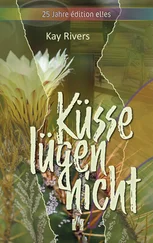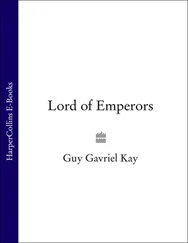
On the isle that same day—south and south away, beyond peaks and rivers, rice fields and marshes and jungles, across a white-waved, wind-chopped strait, barely even within the world of Kitai—morning prayers and thanks were once more being offered that the summer rains had ended.
The rains arrived at Lingzhou with the west wind in the third month and lasted into autumn. The downpour, the steaming damp and the heat, and the diseases they brought were what tended to kill people, mostly those from the north.
Those born south of the coastal mountains, and the natives of Lingzhou itself, were better able to deal with the illness and enervation that came with a sodden summer in a place seen by many as lying adjacent to the afterworld.
There were giant snakes. They were not legends. They slithered through muddy village lanes, or stretched themselves along dripping branches in the dark-leaved forest.
There were poisonous spiders, many different kinds. Some so small they could hardly be seen as they killed you. You never, ever put on boots or shoes without shaking them out first, prepared to jump back.
There were tigers unique to the south. Their roaring could sometimes fill the thick nights of the isle under clouds or stars. The sound was said to paralyze a man if he heard it from too near. They killed many people each year. Being cautious wasn’t enough if the tiger god named you.
There were ghosts, but there were ghosts everywhere.
Wondrous flowers grew enormous blossoms, brilliantly coloured, dizzying perfumes. But it was dangerous to go walking out to see them in meadows or by the forest’s edge, and during summer downpours it was impossible.
Even indoors, in the worst of rain and wind, life became precarious. Lanterns would swing wildly and blow out. Candles on altars could be knocked over. There were fires in huts while rain slammed outside and thunder boomed the anger of gods. One might sit in a sudden midday blackness, shaping poems in one’s head, or speaking them aloud, voice pitched above the crashing and the drum of the rain, to the loyal son who had come to the end of the world as a companion.
When it grew calm, and it was possible to write, Lu Chen took brush and paper, ground his ink, and busied himself with descriptions in poems, and in letters north.
He offered in his correspondence a resolute, defiant good humour. He had no idea if the letters would reach their destinations (they were mostly to his brother Chao, some to his wife, both living on the farm south of the Great River) but there was little for him to do here but write, and it had always been the essence of his soul.
Poetry, essays, letters, memoranda to the court. A habitation built in the mind. He had some books with him, damaged by the damp after several years now. He had the Cho classics committed pretty much to memory, however, and a great deal of poetry. He had written once, long ago, that he truly believed he could find contentment anywhere. That belief was being tested. Along with his ability to laugh, or make others laugh.
Paper was hard to come by. There was one temple housing six clerics of the Path at the edge of the village, and the current elder admired Lu Chen, knew his poetry. Chen walked over there most days, watchful on the muddy path near the forest. They drank the harsh, yellow-tinted island wine and talked. He liked to talk to intelligent men. He liked to talk to anyone.
At intervals, one of the clerics would make the crossing—dangerous in the rainy season—to the mainland for news and supplies, and arrange to obtain paper for him. Thus far the administrators here (the new one was very young, very unhappy, not surprisingly) had not stopped this, though they were aware of it, of course.
They’d had, to this point, no instructions in the matter. Those might yet come. The hatreds of the faction years could reach this far. He was here, wasn’t he? He was proof of hatred. He did think (though never said) that it might have been a woman who had wanted him sent here to die. No way to be sure, but the thought was there. He had decided, from the start, to be difficult about dying.
The clerics took his letters across the strait as well, entrusted them to others journeying over the mountain barrier, through narrow, crumbling passes above chasms, amid the shrieking of gibbons. That was how letters travelled back into the world from this far away.
In exchange for their kindnesses he had written a poem on a wall of their temple.
He was so well known that when word reached the mainland people might come, even to Lingzhou, to see Lu Chen’s writing here. They’d make offerings at the temple. Stay a night or two, pay for that. That was how such matters tended to unfold. He had done wall poems before. His presence here might be a benefit to some.
The brush strokes of the poem, written last spring, were already disappearing in the dampness, though. They hadn’t survived a single summer’s rains. There was a lesson in that, he supposed, about the aspirations of men to do something that would endure. He tried to find it amusing. He was usually able to find amusement in the world.
He had written on the wall about the human spirit, resilience, friendship, red and yellow flowers at the forest’s edge, and ghosts.
There was a ghost lingering by their cabin.
He had seen her twice for certain on the roof: once at sunrise as he walked out, once as he returned at twilight. It did not seem malevolent. It was not a personal ghost, he was sure of that, not one that had followed them here. It was a ghost of the village, the island, of this cottage. No one he asked knew anything about her. There was no name given him.
He’d seen her hair, unbound. It hid her face. There was a phrase, often used in poetry, about the cloud of a courtesan’s hair. The ghost’s was more like smoke, he thought.
He added a candle for her on their altar. They spoke the prayers and made offerings, invoking rest for her unquiet soul. It was likely she had never been buried. That could happen to a person, or to thousands on a battlefield.
He was worried about his son. Beginning this past summer, Lu Mah coughed at night when he lay down, and through the night hours. It seemed to be easing as the dry season finally came, but he was aware this might be his hope as a father, not the truth of things.
It was early morning now, not raining and not yet too hot. Time, soon, to rise from bed. He and Mah were doing exercises each morning whenever it was possible—to the amusement of the villagers, who often gathered to watch them. Twirling and stretching, they used staffs to mock-fight in front of the cottage, holding them like swords at times. “I will be a bandit yet!” he’d cry (and had written of this to his brother, mocking himself). “I will bring back the memory of young Sima Zian!”
His son laughed. That was good.
It was interesting, Lu Chen thought, how many of the references a man made reached specifically to the Ninth. It was as if they were all marked (scarred? diminished?) by glory achieved four hundred years ago, and by the rebellion and the fall.
Sima Zian, one of the master poets, had lived (mostly) before the rebellion. A chasm in the world , another poet had called the civil war that had ensued. The world, Lu Chen thought, exiled on Lingzhou Isle, confronted you with chasms—or jagged peaks—all the time.
He was trying to decide how to persuade Mah to leave. He was the one exiled. Children might have their lives undone by a father’s disgrace but there were precedents for rising above that, given the passage of time and changes at court.
Problem was, he was certain the boy would not go. For one thing, he wasn’t a boy any more. Lu Mah was of an age to take the jinshi examinations (he wouldn’t be allowed to now) and certainly to make his own decisions. He would never defy a direct order from his father, but Chen wasn’t ready to break his son’s heart that way, instructing him to leave.
Читать дальше













